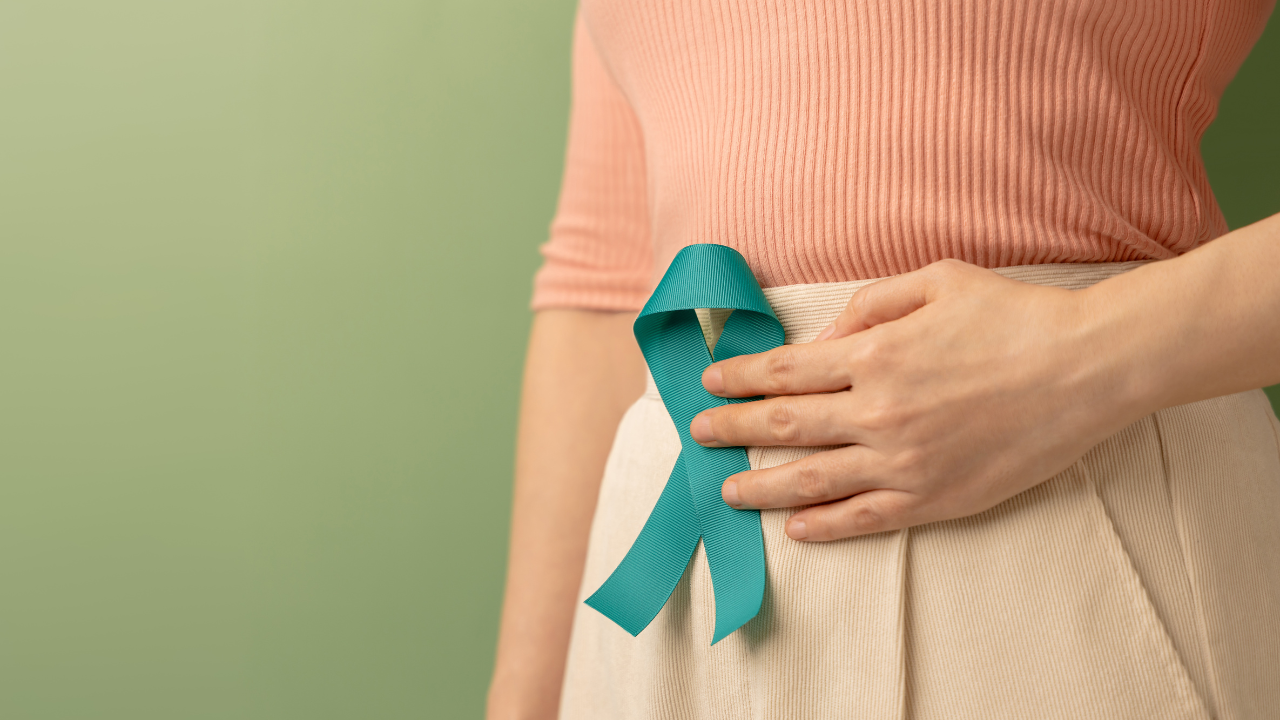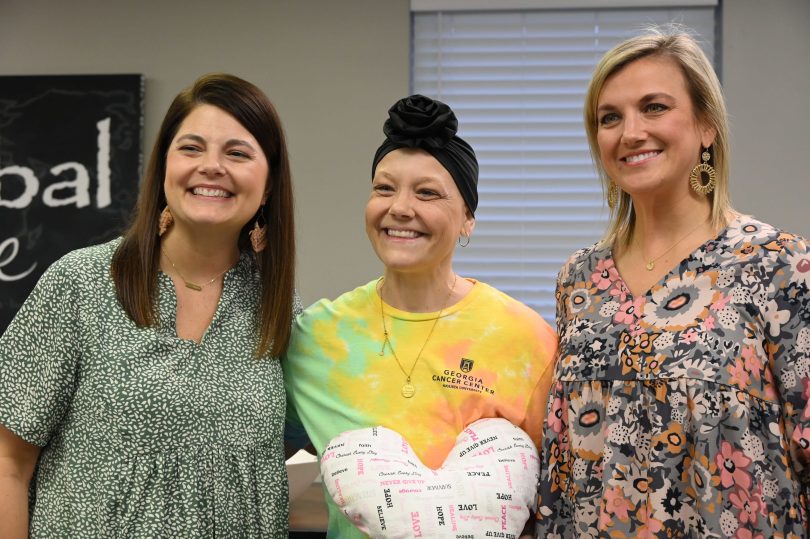Periods don’t have to be painful.
From the time little girls are taught about the facts of life, one of those facts has always been that having a period may mean some pretty painful cramping. So we live with it, figuring it’s just part of the package.
But that fact is, in many ways, a myth, said Dr. Larisa Gavrilova-Jordan, an infertility specialist at Augusta University Reproductive Medicine and Infertility Associates, especially for women living with endometriosis-related pelvic pain.
Every month, the lining of the uterus normally grows to prepare your uterus for pregnancy. If you’re not pregnant, that lining then comes out as your period. But for women predisposed to endometriosis, the cells of the uterine lining grow outside their normal location—the uterus—onto pelvic organs like the fallopian tubes, ovaries, bowel, bladder and elsewhere.
Then when it’s time for that uterine lining to shed and bleed, those cells outside the uterus bleed too, causing inflammation, swelling and formation of endometriotic cysts. The result is what many women describe as “killer cramps,” sharp, incredible bursts of pain during your period: You can’t work, you can’t play, you can barely walk.
Living with Pain
Sue* and her husband are bright, educated and hands-on with their health care. But still, for the past several years, Sue has been trying to manage the pain of endometriosis on her own. When she finally sought help from a specialist, the pain was so bad, she said with frustration, “I just want my uterus out,” even though she and her husband still want to start a family.
According to Gavrilova-Jordan, endometriosis most commonly affects women in their late 20s sand early 30s, although it can occur at any age where a girl or woman is still having a period. Pregnancy, ironically, essentially puts endometriosis in remission since it stops the monthly periods that lead to the symptoms.
But there is no other quick fix for the condition, which Gavrilova-Jordan describes as both chronic and enigmatic. “It’s a chronic disease, the same as diabetes and high blood pressure,” she said. “And if patients don’t understand how to actively manage and control the disease, they commonly become lost and frustrated.”
Endometriosis is also an enigmatic condition because even among the medical field, the facts of endometriosis aren’t common knowledge. Women with endometriosis have reported being diagnosed with a low tolerance for pain, appendicitis, irritable bowel syndrome, even food poisoning.
Which is why, said Gavrilova-Jordan, women need to be their own best advocates.
No More Hiding
The first step is to stop thinking that your periods have to be painful. If you are suffering regular pain during periods that is so bad that you physically can’t do anything, ask your health care provider about endometriosis.
The American Society for Reproductive Medicine stated endometriosis cannot be diagnosed by symptoms alone, as “many women with endometriosis have no symptoms at all.” Endometriosis can be diagnosed by a pelvic exam, laparoscopy, ultrasound, CT scan or MRI.
Still having pain? Keep asking.
Because back to that chronic nature of endometriosis: There is no one surgery or magic pill for the disease, said Gavrilova-Jordan. “It has to be managed just like diabetes or high blood pressure,” she said. “Just as endometriosis takes time to develop to an advanced stage, it takes time to see improvement or resolution of symptoms.”
If you aren’t planning to have a child, hormonal treatment can help trick your body into thinking it’s pregnant and stop periods—thus reducing endometriosis symptoms. After three months, patients should start seeing some relief, with significant improvement in nine months. Then ongoing maintenance is needed. Commonly, more than one option is required to control symptoms for the long term. Laparoscopic or minimally invasive surgery may also be needed to remove any scarring or cysts that have developed from endometriosis.
But the most important thing women can do is not wait and try to manage the pain on their own. “Fifty percent of the time, endometriosis is progressive,” said Gavrilova-Jordan, “and left untreated, it can destroy your ovaries and permanently impact your ability to have children. So let’s change how we approach our periods, talk about our symptoms and get help sooner rather than later.”
*Name has been changed.





